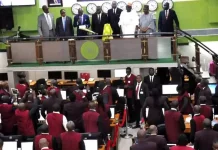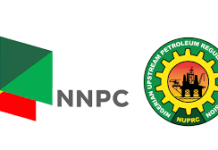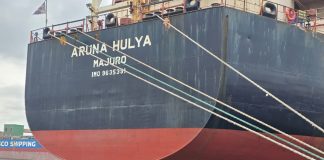The Nigerian National Petroleum Corporation, NNPC, on Sunday, April 3, revealed that a number of international oil companies, IOCs, in the upstream oil and gas sector have agreed to provide foreign exchange for oil marketing companies for the importation of premium motor spirit, also known as petrol.
Chief Operations Officer, in charge of Downstream at the NNPC, Henry Ikem-Obih, who spoke during a tour of petrol stations in Abuja, stated that before the end of April, all the refineries would resume production and begin to contribute positively to improving the fuel scarcity currently facing the country.
Ikem-Obih identified paucity of foreign exchange (forex) as one of the major reasons for the scarcity witnessed across the country, stating that with the decision of upstream oil and gas companies to provide foreign exchange to oil marketers, there would be a significant improvement in the second quarter and beyond.
He said: “As you know, forex was one of the prime reasons we did not do well in the first quarter. Most marketers, who had allocation, could not import because they do not have forex.”
“The minister has worked very closely through his initiative with the upstream oil companies. So, we have a number of them on board to support local entities, that is, downstream companies.”
“They will help provide foreign exchange for them to import and meet their Petroleum Products Pricing Regulatory Agency, PPPRA, allocations. Through the CBN, NNPC would support importation of fuel in the second quarter.”
“These oil companies also would work with us, including the CBN. These combined efforts, we hope, would enable us meet a 100 per cent of import requirement for the second quarter.”
To resume local refining this month Speaking on the refineries, Ikem-Obih stated that all the refineries were at various stages of start-up, in terms of moving them closer to their optimal yield, while he expressed optimism that within the month of April, part of the fuel purchased by Nigerians from petrol stations would be produced locally from the refineries.












